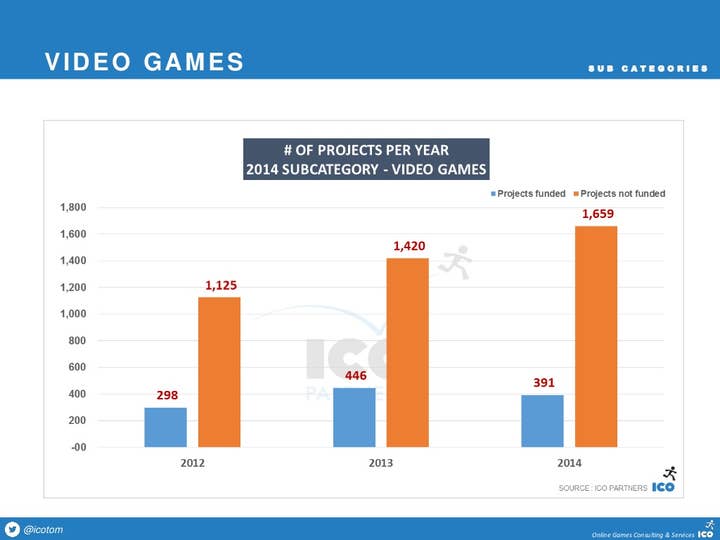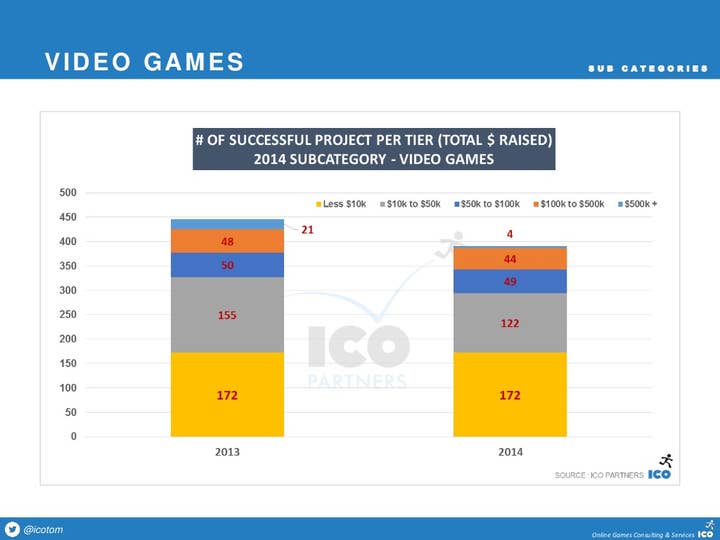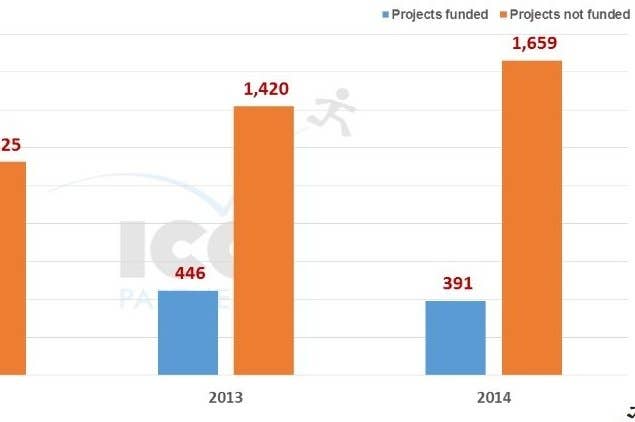2014 saw money pledged to videogame Kickstarters slashed
More campaigns but fewer successes as cash input more than halved
Update
Kickstarter has been in touch to point out that, as it delineated a few categories within video gaming last year, such as mobile games and gaming hardware, the total number of successful projects within the category as a whole actually rose from 438 in 2013 to 465 last year, although the total in donations did still fall.
"The amount pledged to video game projects was in fact down last year, but we view the increase in the number of successful projects as a very healthy sign," said spokesman David Gallagher. "There were fewer blockbusters, but a healthy mix of really diverse smaller projects. Our mission is to bring creative projects to life - big or small."
New research from ICO Partners has shown that 2014 saw a huge drop in the money being pledged to gaming Kickstarters, with the total cash submitted dropping massively from nearly $58 million in 2013 to just over $25 million in 2014.
Some of that disparity can be accounted for by the absence of as many high-profile campaigns, which were attracting large sums in 2013. For example, ICO Partners' Thomas Bidaux's findings indicate that almost $30 million was pledged to campaigns seeking an excess of $500,000 in 2013, but only around $4 million went to projects of that size last year.

Furthermore, that drop occurred despite an increase in the number of gaming campaigns, from 1866 to 2050. Of those 2050 campaigns, however, even fewer were successfully funded than in 2013, with just 391 making the cut compared to 2013's 446. That means the vast majority, 1659 of the 2050 titles, failed to hit their targets.
Mapping out at which price points the successful projects were targeted, ICO Partners found that it was mid-tier projects looking for $10,000-$50,000 which showed the biggest decrease in success, as well as those top-tier 'super projects' asking for over half a million dollars. In other funding tiers, numbers for success remained largely static.

Projects seeking funding in dollars, (not necessarily directly equatable to US-based projects, as many countries without direct access to Kickstarter fund in USD) were the most populous and the took the most cash - easily outstripping UK Sterling as the second most popular currency, with 1269 projects taking $18.4 million in dollars compared to 377 taking $4.3 million in pounds.
So does this mean that Kickstarter is saturated? Are we in a gap between promise and product which is damaging the trust of Kickstarter backers? Expanding availability to new territories has had little impact, certainly as far as videogames are concerned, and successful funding numbers overall are remaining fairly flat, despite the rush in applications. Still, donations across all categories combined are up, albeit by a much smaller increment than seen previously, so there still seems to be room for growth, but it doesn't appear to be gaming which is attracting it.

But it's not just videogames which are finding a bigger gap between submissions and success. Across the entire service the number of unfunded projects jumped enormously in 2014, leaving nearly 25,000 teams pondering their failure. In fact, 2014 saw a 46 per cent increase in submissions of all Kickstarter projects, but only a five per cent increase in successes.
For the full report from ICO Partners, see Thomas' analysis here. Note that slides which list the category as "Games" are inclusive of tabletop games as well as videogames, a sector which has seen considerable success.
All images are courtesy of ICO Partners and Thomas Bidaux

